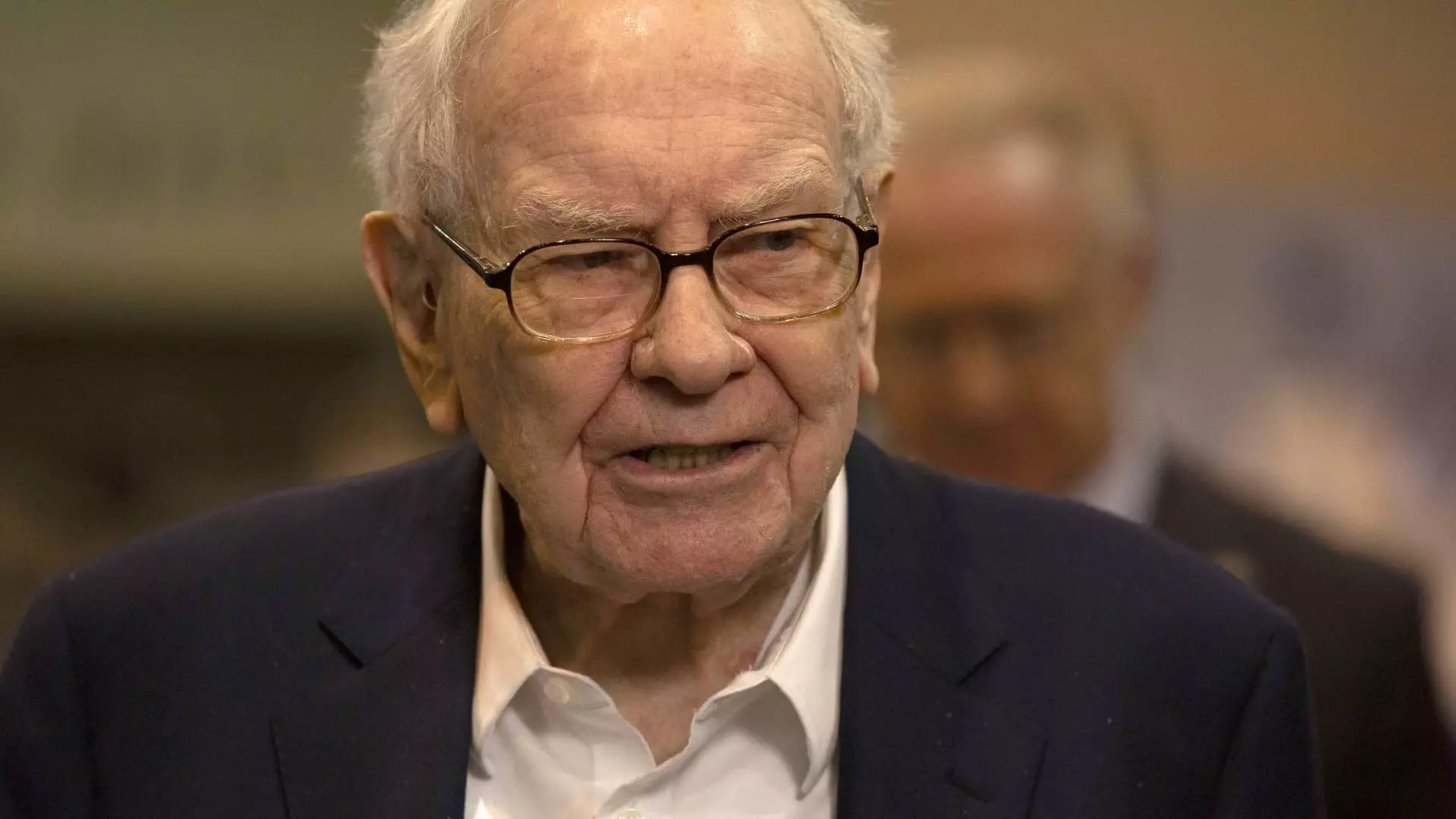Berkshire Hathaway, the multinational conglomerate led by legendary investor Warren Buffett, recently reported a staggering cash reserve exceeding $325 billion as of September 2023. This marks an unprecedented increase from the $276.9 billion recorded in the prior quarter. The rise in cash holdings has raised eyebrows among analysts and investors alike, prompting discussions on the implications of such a financial strategy. What does this massive cash pile signify for the company’s future and Buffett’s investment philosophy?
Buffett’s approach appears increasingly conservative as he has rapidly capitalized on the opportunity to sell significant stakes in major holdings, primarily focusing on tech giants such as Apple and Bank of America. In the third quarter alone, Berkshire Hathaway divested approximately a quarter of its Apple shares, marking the fourth consecutive quarter of reducing its investment in the tech giant. Such a sustained divestment strategy has sparked debates regarding Buffett’s long-term outlook on technology investments and whether he foresees a market correction in this sector.
Additionally, the company has successfully exited a notable portion of its Bank of America investment since mid-July, realizing over $10 billion in profits. This continued selling spree culminated in Berkshire shedding a staggering $36.1 billion in stocks during the third quarter. Critics argue that, while liquidation of assets can be a prudent approach, it may also reflect a lack of confidence in existing positions, particularly in a bullish market environment.
Adding to the intrigue of Berkshire’s financial maneuvering is the company’s surprising decision not to repurchase any shares during this latest period. Historically, share repurchases have been a hallmark of Buffett’s strategy, utilized when he identifies Berkshire’s stock as undervalued. However, earlier this year, repurchase activity slowed significantly. In the second quarter, repurchases amounted to a meager $345 million, contrasting sharply with the $2 billion repurchased in each of the previous two quarters.
This shift in strategy prompts speculation about Buffett’s valuation criteria for Berkshire’s intrinsic value and his perception of the company’s market performance. Given that Berkshire shares have outperformed the broader market, hitting record highs with a 25% increase this year, the absence of buybacks raises questions as to whether Buffett believes further growth is achievable or if he is anticipating an impending correction.
Buffett’s cautious disposition comes amidst a fluctuating economic landscape, painted by resilient stock market performances against a backdrop of inflation and interest rate changes. Although the overall market, buoyed by anticipations of a stable economic transition with decreasing inflation and a potentially easing Federal Reserve, has advanced this year, rising interest rates—evidenced by the 10-year Treasury yield surpassing 4%—have introduced uncertainty.
Furthermore, prominent investors like Paul Tudor Jones have expressed concern regarding the alarming fiscal deficit, contemplating whether presidential candidates will address spending reforms. In light of this, Buffett’s liquidating actions might also serve a tactical purpose, liquidating assets while capital gains taxes are perceived to be at lower levels, anticipating a shift in tax policy to counterbalance the federal deficit.
As Berkshire Hathaway’s cash reserves swell and its stock portfolio undergoes significant adjustments, the investment community watches closely for cues about Buffett’s future directives. While the company’s recent actions might suggest caution, they could equally reflect strategic positioning for new opportunities that arise. With a proactive yet watchful eye on the market, Buffett’s decisions will likely shape Berkshire’s trajectory amid economic changes and investor sentiment. The record cash pile may indeed become a war chest for strategic acquisitions or investments in promising ventures once market conditions become more favorable.
Evaluating Buffett’s strategies deeply invites further exploration into the dynamics of value investing in uncertain times, reaffirming the notion that successful investing is often as much about managing risks as it is about pursuing growth. Berkshire Hathaway, under Buffett’s stewardship, continues to exemplify this dual approach as it navigates the complexities of the modern investing landscape.

